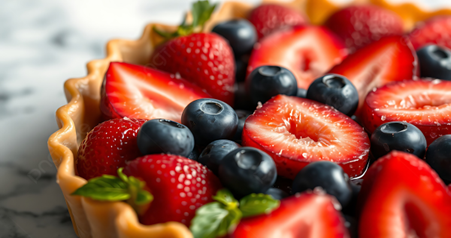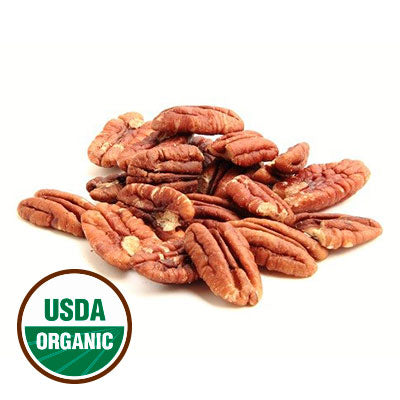Berry Power: How These Superfoods Prevent and Fight Breast Cancer
Introduction
Breast cancer remains the most prevalent cancer among women worldwide, with over 2 million new cases reported in 2018 alone. It is not a singular disease but a complex collection of different cancers, each with distinct biological characteristics, clinical presentations, and treatment responses. Standard treatment options, including surgery, chemotherapy, and radiation therapy, have advanced significantly, yet the disease continues to affect millions of women. This growing concern has led to increased interest in alternative and complementary approaches, including nutrition, as a powerful tool for prevention and support in the fight against breast cancer.
Among the many foods studied for their potential cancer-fighting properties, berries stand out as nutritional dynamos packed with beneficial compounds. These fruits contain a wide array of bioactive compounds that may help reduce breast cancer risk, slow tumor growth, and enhance overall health. Their rich antioxidant content, including flavonoids, anthocyanins, and polyphenols, play a crucial role in protecting cells from damage, reducing inflammation, and potentially inhibiting cancer development.
A growing body of research highlights the importance of diet in influencing cancer risk. Many studies suggest that consuming plant-based foods, particularly those rich in antioxidants and anti-inflammatory compounds, can significantly impact overall health and disease prevention. Berries fit perfectly into this model due to their high concentrations of vitamins, minerals, fiber, and phytochemicals. These nutrients work synergistically to support the immune system, protect DNA from damage, and modulate key cellular pathways involved in cancer progression.
Berries are rich in anthocyanins, the pigments responsible for their deep red, blue, and purple hues. These compounds have long intrigued researchers for their potent antioxidant capabilities. These effects include reducing inflammation, preventing DNA damage, inhibiting tumor cell proliferation, and even promoting the regression of premalignant lesions.
While scientists continue to explore the precise mechanisms by which berries influence cancer development, one thing is clear: these small flavorful fruits hold remarkable potential in the battle against breast cancer. Whether fresh, frozen, or in powdered form, incorporating berries into the diet is a simple and delicious way to boost overall health while harnessing their cancer-fighting benefits.
As interest in natural approaches to disease prevention grows, berries are gaining recognition as a powerful ally in the fight against cancer. The following sections will explore the specific ways these berry-rich compounds help prevent and combat breast cancer, and which are best to incorporate into your diet.
Cancer-Fighting Compounds in Berries and How They Work
Many of these compounds have been extensively studied for their potential role in preventing and slowing the progression of breast cancer. Their mechanisms of action include neutralizing free radicals, reducing inflammation, modulating cell signaling pathways, inhibiting tumor growth, and promoting cancer cell death.
Below are the key cancer-fighting compounds found in berries and how they work, particularly in relation to breast cancer prevention and treatment.
Antioxidants: The First Line of Defense Against Cancer
One of the primary ways berries help protect against breast cancer is through their antioxidant properties. Antioxidants are compounds that neutralize free radicals, which are unstable molecules that can cause cellular damage and contribute to the development of cancer.
How They Work: Free radicals are naturally produced in the body due to metabolism, exposure to environmental toxins, and ultraviolet (UV) radiation. When these molecules accumulate, they can damage DNA, proteins, and cell membranes, leading to mutations that may trigger cancer.
Impact on Breast Cancer: Antioxidants found in berries, such as vitamin C, vitamin E, and flavonoids, help counteract oxidative stress, a key factor in cancer initiation and progression. By reducing oxidative damage, antioxidants may help lower the risk of mutations that lead to tumor formation.
Polyphenols & Flavonoids: Powerful Cancer-Fighting Phytonutrients
Berries are rich in polyphenols and flavonoids, two major classes of plant-based compounds with strong anti-inflammatory and anti-cancer properties.
How They Work:
· Polyphenols: This vast group of over 8,000 plant compounds includes flavonoids, tannins, and lignans. Polyphenols in berries have been shown to modulate cancer-related genes, slow tumor growth, and enhance immune response.
· Flavonoids: A specific type of polyphenol, flavonoids such as quercetin, kaempferol, and catechins found in berries help protect cells from DNA damage and uncontrolled proliferation.
Impact on Breast Cancer: Studies indicate that flavonoids in berries interfere with cancer cell signaling, preventing tumor growth and suppressing inflammation. In some cases, flavonoids have been linked to a lower risk of estrogen receptor-negative breast cancer, one of the more challenging forms to treat.
Ellagic Acid: A Natural Cancer Fighter
Ellagic acid is a potent phytochemical found in berries like raspberries, strawberries, and blackberries. It has received attention for its ability to prevent and slow the growth of cancer cells.
How It Works:
· Inhibits carcinogen activation, preventing harmful compounds from binding to DNA.
· Encourages apoptosis (programmed cell death) in cancer cells, preventing their uncontrolled growth.
· Blocks angiogenesis, the formation of new blood vessels that tumors need to grow.
Impact on Breast Cancer: Research suggests that ellagic acid helps regulate estrogen metabolism, a key factor in hormone-sensitive breast cancers. By limiting estrogen’s ability to promote tumor growth, ellagic acid may be particularly effective in reducing breast cancer risk.
Anthocyanins: The Pigments That Protect Against Cancer
Anthocyanins are the natural pigments that give berries their deep red, blue, and purple hues. Found in blueberries, blackberries, cranberries, and blackcurrants, these flavonoids are among the most potent cancer-fighting compounds in berries.
How They Work:
· Exhibit strong antioxidant properties, reducing oxidative stress and DNA damage.
· Have anti-inflammatory effects, which are crucial for preventing cancer progression.
· Suppress tumor cell proliferation, slowing or stopping the growth of cancerous cells.
Impact on Breast Cancer: Some research suggests that anthocyanins may reduce the ability of breast cancer cells to invade healthy tissues. Their antioxidant and anti-inflammatory effects also help create an environment that is less favorable for tumor development.
Fiber: A Natural Detoxifier and Hormone Regulator
In addition to their phytonutrient content, berries are an excellent source of dietary fiber, which plays a vital role in maintaining digestive health and reducing cancer risk.
How It Works:
· Supports Gut Health: Fiber helps maintain a healthy balance of gut bacteria, which influences immune function and inflammation.
· Removes Toxins: Fiber binds to and helps eliminate toxins and excess hormones, including estrogen, which is involved in some breast cancers.
· Regulates Blood Sugar Levels: Helps prevent spikes in insulin, which is linked to an increased risk of certain cancers.
Impact on Breast Cancer: High fiber intake has been associated with a reduced risk of hormone-sensitive breast cancers. By removing excess estrogen and promoting a healthy gut microbiome, fiber-rich foods like berries contribute to overall cancer prevention.
The cancer-fighting potential of berries comes from their unique combination of antioxidants, polyphenols, ellagic acid, anthocyanins, and fiber. These compounds work together to protect cells, reduce inflammation, regulate hormones, and prevent tumor growth.
Eating a Variety of Berries Offers the Best Cancer Prevention
While all berries offer significant health benefits, each type contains a unique combination of cancer-fighting compounds that work together to protect cells, reduce inflammation, and regulate critical pathways involved in cancer development. To maximize protection, it is best to eat a variety of berries, as their distinct phytochemicals provide complementary health benefits.
Below is a breakdown of some of the best berries for breast cancer prevention and support, along with their specific compounds and mechanisms of action.
Blueberries: The Ultimate Cancer-Fighting Superfood
Blueberries (Vaccinium corymbosum) rank among the most potent antioxidant-rich fruits and are highly recommended for breast cancer prevention.
Key Cancer-Fighting Compounds:
· Anthocyanins: Delphinidin, malvidin, and petunidin help neutralize free radicals and reduce oxidative stress.
· Flavonoids: Quercetin, kaempferol, and myricetin support anti-inflammatory and anti-cancer activities.
· Resveratrol & Pterostilbene: These compounds have been linked to slowed tumor growth and increased cancer cell apoptosis.
· Catechins & Gallic Acid: Help inhibit cancer cell proliferation and reduce inflammation.
Impact on Breast Cancer: Studies have shown that blueberry consumption is associated with reduced breast cancer risk and improved treatment outcomes. A 2020 study found that women who consumed at least two servings of blueberries per week after a breast cancer diagnosis had significantly lower breast cancer-specific mortality.
Raspberries: A Natural Breast Cancer Fighter
Raspberries (Rubus idaeus) are packed with powerful phytochemicals that support cellular detoxification and hormone regulation.
Key Cancer-Fighting Compounds:
· Ellagic Acid: A potent anti-cancer agent that blocks cancer-promoting pathways and encourages apoptosis (programmed cancer cell death).
· Flavonoids & Fiber: Help regulate estrogen levels, which is particularly important for hormone-sensitive breast cancers.
· Cyanidin (a type of anthocyanin): Known for reducing cancer-causing gene expression and promoting tumor suppression.
Impact on Breast Cancer: Ellagic acid in raspberries is under study for its anti-estrogen properties, making it beneficial for estrogen receptor-positive breast cancer.
The high fiber content supports hormone detoxification, reducing the risk of hormone-related cancers.
Strawberries: A Vitamin C-Rich Cancer Shield
Strawberries (Fragaria × ananassa) are excellent sources of vitamin C, an essential antioxidant for immune function and cellular protection.
Key Cancer-Fighting Compounds:
· Vitamin C: Boosts immune function and neutralizes free radicals.
· Flavonoids & Phenolic Acids: Help inhibit tumor progression and reduce oxidative stress.
· Ellagic Acid: Promotes cancer cell apoptosis and prevents carcinogen activation.
Impact on Breast Cancer: Studies suggest that strawberries may slow tumor progression and provide protective effects against oxidative damage, while their high vitamin C content may support the immune system, helping the body combat cancer more effectively.
Blackberries: A Powerhouse of Antioxidants
Blackberries (Rubus fruticosus) are among the richest sources of polyphenols and anthocyanins, both of which are crucial in combating chronic inflammation and oxidative stress.
Key Cancer-Fighting Compounds:
· Anthocyanins & Flavonoids: Work together to suppress inflammation and inhibit cancer cell proliferation.
· Ellagic Acid & Catechins: Provide additional anti-tumor benefits.
· Vitamins A, C, and E: Support immune function and cellular repair.
Impact on Breast Cancer: Blackberries help neutralize free radicals, which can lead to DNA mutations and cancer development. They also support the immune system in targeting and eliminating malignant cells.
Cranberries: A Natural Tumor Inhibitor
Cranberries (Vaccinium macrocarpon) are well known for their ability to support urinary tract health, but they also possess remarkable anti-cancer properties.
Key Cancer-Fighting Compounds:
· Proanthocyanidins: May prevent cancer cell adhesion, making it harder for tumors to spread.
· Resveratrol & Myricetin: Known to inhibit cancer cell growth and induce apoptosis.
· Ursolic Acid & Salicylic Acid: Exhibit anti-inflammatory and anti-tumor properties.
Impact on Breast Cancer: Studies show that cranberries can reduce the proliferation of breast cancer cells and enhance the effects of conventional treatments. Additional studies suggest that cranberry consumption can also slow tumor growth and reduce metastasis.
Acai Berries: A Tropical Anti-Cancer Superfruit
Acai berries (Euterpe oleracea) have gained popularity for their high antioxidant content and potential health benefits, including cancer prevention.
Key Cancer-Fighting Compounds:
· Anthocyanins: Provide potent antioxidant and anti-inflammatory effects.
· Omega Fatty Acids: Support cellular health and immune function.
· Polyphenols & Flavonoids: Help reduce oxidative stress and prevent DNA damage.
Impact on Breast Cancer: Acai berries have been shown to support overall cellular health and protect against oxidative damage, which is crucial in cancer prevention. Their anti-inflammatory properties may help slow tumor progression.
Conclusion
Each berry variety offers unique and complementary compounds with effective breast cancer-fighting capabilities, making it beneficial to consume a diverse range of berries for maximum protection. You are not just indulging in delicious and nutritious berries that liven up your diet; you are also giving your body a natural defense system against breast cancer.
===========================================================


